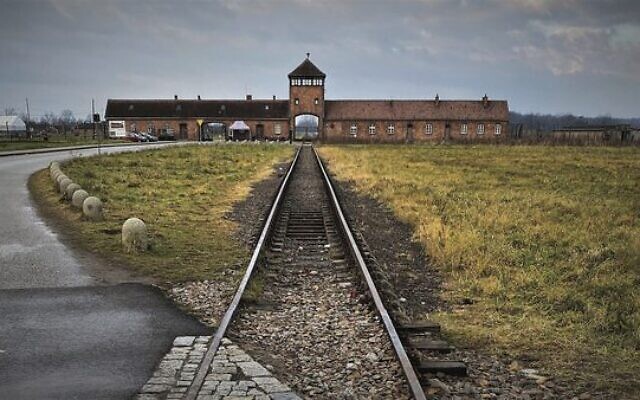‘It is their actions which were extraordinary’
The choices we make define us – to ourselves and to others. Who we are, what we stand for and what we will accept

We make choices every waking hour – at home, in the street, the supermarket, restaurants.
We have hundreds of decisions to make every day, and most of them with no consequences of any lasting significance to us, let alone others.
We are not even aware of making most of such choices.
At other times, in other places, choices people made, were forced to make, had heavy consequences.
Another way of looking back at the Holocaust, and other genocides, is from the point of view of the choices different people make in such times.
Even among the perpetrators there were options to be selected from – to “follow orders” was an option many made.
For many it was a confirmation of their religious beliefs, swaying them to support the Nazis, or to oppose them.
And in what form to support or oppose?
How far am I prepared to go, to sacrifice, to endanger myself and my family. What am I prepared to do to secure, advance my career, my prospects for promotion?
Or do I just stand by and watch, not get involved, stay safe – is it not my business?
Refuse to see, hear, read, what is going on around me.
Would that be best?
For some, to be bystanders was a financial or a security decision made in very stressful times.
Apathy, the mindset of simply not caring for the plight of others, was possibly the most prevalent sentiment of the bystanders.
The victims of the Nazis also had choices to make.
Run or stay?
Run? – This way or that.
Resist or comply with orders issued to them?
Or, maybe, even collaborate?
Split the family so that at least someone has a better chance to survive, or stay together?
A few chose not to be bystanders to the horrors being perpetrated around them to humans – just like them.
Why?
For such people the choice to help and protect the persecuted was simply an affirmation of who they are and what they stood for.
These were ordinary people – it is their actions which were extraordinary.
But extraordinary only because so few people behaved this way.
Empathy, the ability to put oneself in another’s shoes, was certainly a large component of the choice-making process of those who decided to be upstanders against the prevailing regime rather than spectators to what was being done to their neighbours and fellow citizens.
Among some, regrettably too few, there was moral outrage against what was being done to other humans.
Realisation of their potential ability to help the victims of persecution was also an activating force for those who did not agree with the Nazi policies, specifically the racial cleansing of the undesirable elements of Hitler’s Germany, and more specifically the genocide of the Jewish population of Europe.
For many, the choice to help the persecuted, hunted and oppressed was instinctive and instantaneous – most times there was no opportunity or time to consider one’s options or consult with the family or other like-minded opposers of Hitler’s vision.
Looking for rewards for their actions, in this life, or hereafter, was mostly not a consideration among many rescuers of the Jewish people, and others. Saving lives here and now regardless of consequences was the priority.
The act itself was their reward.
When, after the war, I offered our rescuers the possibility of a rewarding recognition by Yad Vashem as Righteous Among the Nations for their bravery and compassion, they were not even interested to hear the details before they rejected the offer.
During communism in Czechoslovakia, until 1989, it was politically not advisable to accept anything, including honours and acknowledgments, from outside the Communist Bloc.
Also, continuing antisemitism, particularly in eastern Europe, and more so in small villages, no doubt played a part in our rescuers’ decision not to consider the Yad Vashem honours, although this is my interpretation of their choice and was never discussed.
The choices we make define us – to ourselves and to others. Who we are, what we stand for and what we will accept.
We will live by the choices we make – we will sleep with our consciences, or they will keep us awake.
Melbourne-based Peter Gaspar is a child survivor of the Holocaust. Friday, January 27 is the International Day of Commemoration in Memory of the Victims of the Holocaust.

comments